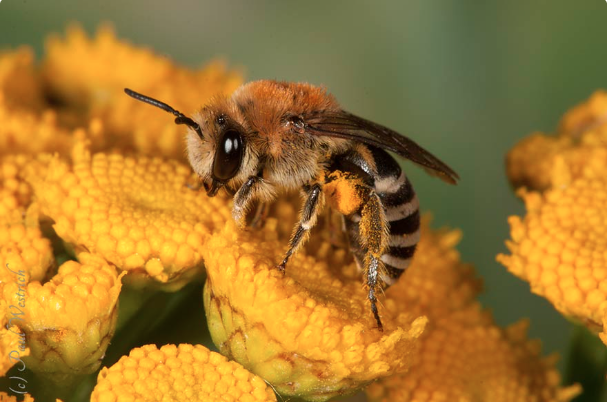Thank you for your interest in this petition. The petition has been brought to a close by its initiator, but there are many other petitions people like you have launched to make of Europe a better place. Take a look or start your own here: https://you.wemove.eu
To all EU-Citizens (The EU-Citizens’ Initiative is directed at the EU Commission)
This petition is run by the Ecological Democratic Party
Petition text
Register here to be informed about our ECI “WE SAVE BEES”, the EU-Citizens’ Initiative to preserve natural diversity.
– As from Mid-June, when the certified ECI-tool will be online (wesavebees.eu), we will be collecting a minimum of one million signatures throughout Europe.
(Please note: This is not the ECI itself but the pre-registration.)
Why is this important?
In all European countries there has been a drastic decrease of insects. During the last 30 years for example Germany has lost 75% of the mass of insects. We need an IMPACT NOW! - In 2019 the next period of “Common Agricultural Policy” 2021-2025 will be decided. That’s what we want to influence. The EU-Citizens’ Initiative (ECI) is an official instrument of direct democracy on a secure platform. It will result in a clear mandate to the EU-Commission to do much more for the effective protection of species in Europe.
The text of the ECI can be read below.
CALLS FOR CHANGES
75% of the world’s nutrition depends on pollination of insects.
“Nature is declining globally at rates unprecedented in human history — and the rate of species extinctions is accelerating, with grave impacts on people around the world“, warns the Intergovernmental Science-Policy Platform on Biodiversity and Ecosystem Services (IPBES) in its global report on the state of species diversity (published May 2019). The Report finds that around 1 million animal and plant species are now threatened with extinction, many within decades, more than ever before in human history.
One of the biggest threats for thousands of bees and butterflies is the current farming policy. It is not yet too late for corrective measures, “but only if we begin IMMEDIATELY on all local and global levels” scientists state.
PRESSURE ON THE EUROPEAN COMMISSION
For this reason, we’re starting the EU-Citizens’ Initiative “We save bees” from 27.05.2019. Citizens of all European countries can herewith call on the EU-Commission to adopt measures for the protection of species in order to preserve natural habitats at EU-level.
The ECI “We save bees” asks for a significantly intensified species protection. We call for mandatory targets in order to make the promotion of biodiversity an overall objective of the Common Agricultural Policy of the EU, to immediately ban dangerous pesticides, to better protect nature and improve agriculture education and training.
EUROPE CAN DO WHAT BAVARIA DID
In Bavaria we initiated one of the most successful petitions in German history to take immediate steps to protect bees and insects. The number of participants reached record levels: 1.7 million signatures in Bavaria. Now Bavaria has now one of the most advanced laws in nature protection in Europe.
PLEASE HELP to make “We save bees” the BIGGEST ECI in the history of the EU.
REGISTER NOW! - IMPORTANT!
Please register here. We will inform you about the start date of the online-collection of signatures of the ECI “We save bees” in the course of June.
In the name of the bees, wild bees, butterflies and thousands of other insects, MANY THANKS!
Manuela Ripa,
spokeswoman for the EU-Citizens’ Initiative “We save bees”
Text of the EU-Citizens’ Initiative
DESCRIPTION:
Save the bees! Protection of species diversity and and improvement of habitats for insects in Europe.
OBJECTIVES:
We need insects for our ecosystems and for the safeguarding of our food sources. The Commission needs to make statutory provision for the conservation and improvement of insect habitats as indicators of a healthy environment.
MOST IMPORTANT AIMS:
In order to be able to demonstrate improvements in natural habitats, we are calling for mandatory targets:
- to make the support of biodiversity the overriding aim of the GAP
- to drastically reduce the use of pesticides, to outlaw dangerous pesticides and to reform licencing requirements
- to increase structural diversity in agriculture
- to reduce nutrient input into soils more effectively (e.g. Natura 2000)
- to establish effective protected areas (e.g. Water Framework Directive)
- to intensify research and monitoring and to improve training

